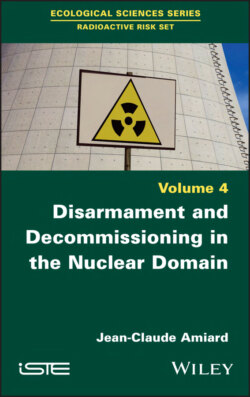Читать книгу Disarmament and Decommissioning in the Nuclear Domain - Jean-Claude Amiard - Страница 42
1.8. Conclusions
ОглавлениеThe UN policy of non-proliferation has had mixed success as a number of countries (South Africa, Libya) have abandoned their military programs and signed the NPT. However, this policy has also suffered many setbacks since a number of states have acquired control of atomic bombs (India, Pakistan and North Korea), and this number is likely to increase in the short and medium term (Iran and Saudi Arabia).
International treaties are currently undergoing a serious crisis. For example, only one international treaty has been ratified (NPT), but it is on hold. In addition, nuclear deterrence is increasingly being challenged by some non-nuclear weapon states. This is the case, for example, for the Vatican, which no longer seems to accept the concept. In the face of this accumulation of negative facts, non-nuclear-weapon states have recently adopted the TIAN Treaty and 50 states ratified it on October 24, 2020 (mainly states from South America, the Caribbean, Oceania and Africa). It therefore entered into force on January 22, 2021.
The probability of an intentional or accidental explosion is increased today due to the considerable investment in nuclear weapons, their associated systems and their modernization. The increased reliance on automated false alarm detection systems also increases the risks. In addition, technological advances favor terrorists because their needs for specific expertise will be less. Therefore, to completely eliminate nuclear risk, the only solution is the total elimination of nuclear weapons [UNI 17].
